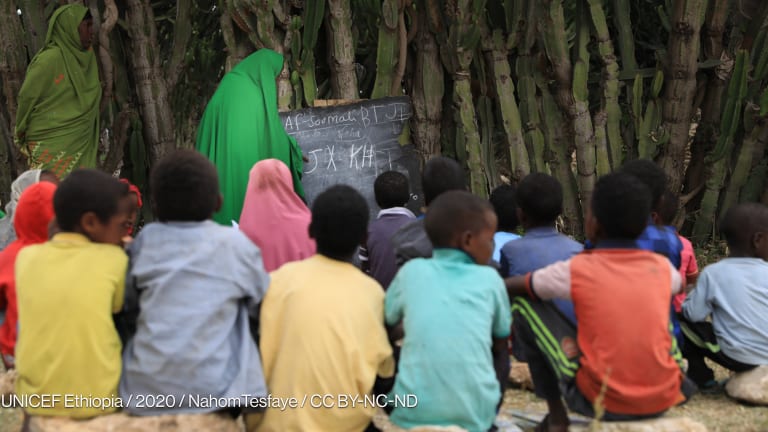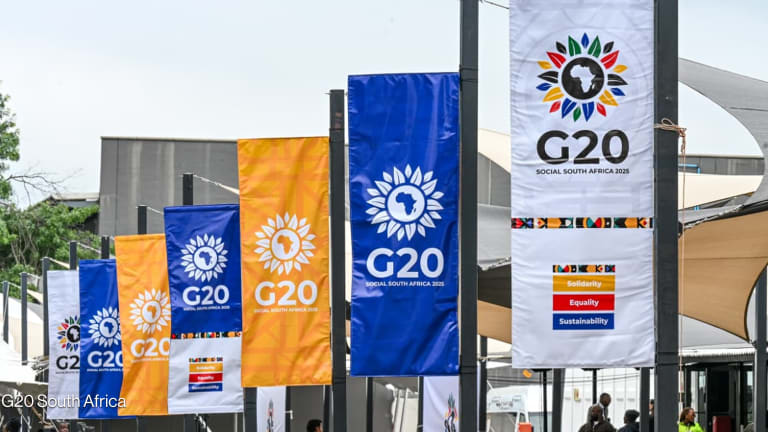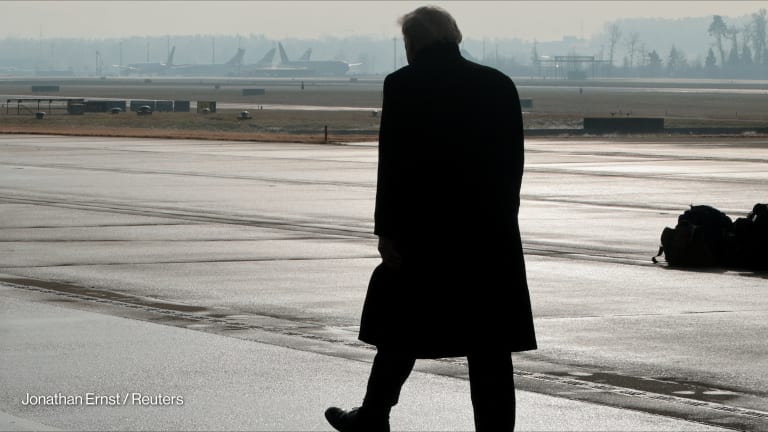
WASHINGTON, D.C. — Politicians, business leaders and a former top United States defense official have made a passionate case for maintaining one of President Barack Obama’s flagship programs — the Young African Leadership Initiative — which is likely to be cut back under the administration of President Donald Trump.
They spoke as 1,000 young people from across sub-Saharan Africa gathered in Washington, D.C., this week for four days of networking, discussions and talks at the Mandela Washington Fellowship Summit, which marks the culmination of a six-week exchange program funded by the U.S. government and 38 American universities.
Started in 2014, the fellowship is the centerpiece of YALI, launched by Obama in 2010 to support economic growth, democratic governance, and peace and stability across the African continent by offering “young leaders” the opportunity to spend a summer studying business, entrepreneurship, civic leadership and public management at American universities. Some fellows are also offered internships in the U.S., and all are offered continued training, networking and mentoring opportunities when they return home.
One of the summit’s key speakers, Nigerian economist and philanthropist Tony Elumelu — the multimillionaire whose foundation focuses on promoting African entrepreneurship and leadership — spoke of the need for a “new kind of leadership for Africa.” He called on the fellows in the packed audience to “seize the opportunity” offered by YALI and to “fulfil the aspirations and dreams” that Nelson Mandela, after whom the program is named, had for the continent.
Stay up to date on Devex coverage of U.S. foreign policy under Trump:
▶ USAID is changing its mission statement
▶ In Trump's US aid shake-up, advocates see a window for long-sought reforms
▶ No intent to merge USAID into State, says deputy secretary of state
▶ Opinion: A new vision for US foreign assistance
▶ USAID exploring food aid, disaster assistance merger for Trump reorganization
While the mood among participants was exuberant, the spectre of budget cuts was never far away. Democratic Senator Chris Coons — a member of the State, Foreign Operations, and Related Programs subcommittee, which recommends funding levels for YALI — announced to cheers that maintaining YALI’s budget would be his “top priority.” Other speakers took pains to explain how exchange programs such as YALI benefit both African and American interests.
Although in past years Obama himself has attended the summit, the U.S. government was represented this year by senior civil servants from the U.S. State Department and the U.S. Agency for International Development, the joint funders of the fellowship.
Uncertain future
Concern for the program’s budget comes after the Trump administration’s budget request called for YALI’s funding to be reduced from $19 million in 2017 to $5 million. While the exact figures are still unclear, a State Department official told Devex that the program’s funding would be “reduced” across all workstreams and would mean a smaller cohort of fellows in subsequent years.
Kristin Lord, chief executive officer of IREX — the youth empowerment NGO that implements the fellowship program — confirmed that government officials have told her to expect funding for 700 fellows in 2018, down from 1000 this year.
Lord was sanguine about the cuts, telling Devex that 700 fellows is still a “significant” number and will “maintain the overall integrity of the program.” Furthermore, it still represents an increase from the program’s first year cohort of 500.
The program has attracted 3,000 fellows to date; and the number of applicants has also risen dramatically, reaching 64,000 this year, Lord said.
In addition to the fellowship, YALI includes four regional centers for the training of young African leaders in Ghana, Kenya, Senegal and South Africa; and offers seed funding to African enterprises. USAID invested more than $38 million into the centers, supplemented by a $10 million, five-year commitment from the MasterCard Foundation, and financial and in-kind contributions from other private sector players. The future of the centers remains unclear as allocations have not been finalized.
Strong bipartisan support
The Senate is yet to agree on a foreign operations budget. Given the short timeline — the full budget needs to be agreed by the end of September — a continuing resolution bill may be passed, which would temporarily maintain YALI’s budget at current levels.
Coons said that “there are many Republicans and Democrats in the Senate who feel strongly about supporting the U.S.-Africa relationship,” which he described as “a relationship deeply worth investing in over the long term.”
He also said that YALI has strong bipartisan support in the Senate, and that he would continue to lobby Republicans on the program’s strategic importance in maintaining peace and stability, and in reducing the need for American interventions in Africa.
The senator — who has hosted a Mandela Washington fellow in his Delaware office every year since the program started — also said that YALI offers the U.S. a way of staying competitive in Africa, amid China’s growing influence in the region.
“It’s just a shockingly small amount of money in national security terms but it’s so important in serving U.S. national security interests,”
— Kristin Lord, CEO of IREXIREX’s Lord said she shared Coons’ faith in YALI support across the political divide, saying, “we hope and expect there is bipartisan support [for YALI] going forward, and that’s certainly what we’ve been hearing.”
According to Lord, the fellowship program has been leveraging $3 for every $1 of taxpayers’ money allocated through support from universities and businesses. She described the program as offering the U.S. government a “high return on investment,” especially when considering the benefits for national security.
“It’s just a shockingly small amount of money in national security terms but it’s so important in serving U.S. national security interests,” she said.
This point was reiterated by General (Ret.) Richard Myers, president of Kansas State University and a former chairman of the Joint Chiefs of Staff, who also spoke at the summit.
One of this year’s fellows — Nangoh Maewo Nangoh, a doctor from Cameroon who works at the humanitarian agency Médecins Sans Frontières — has just finished six weeks studying at the Humphrey School of Public Affairs, part of the University of Minnesota, under YALI.
He said he applied to the fellowship in order to gain more insight into policy making, and how to influence the way that humanitarian aid is delivered across Africa.
Nangoh said he was “very disheartened” that the fellowship program could be cut. The 3,000 fellows who have passed through it since it was set up “have been collaborating and doing great things across Africa,” he said. “Cutting funding will limit the progress of Africa.”
Read more international development news online, and subscribe to The Development Newswire to receive the latest from the world’s leading donors and decision-makers — emailed to you free every business day.








